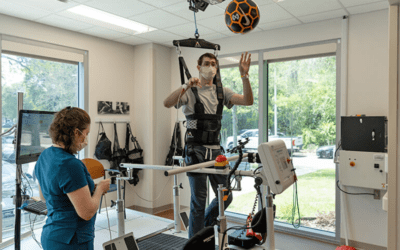Engaging in sports and games promotes physical fitness, crucial for maintaining brain health and reducing the risk of neurological disorders. Regular physical activity enhances cognitive function, improves mood, and supports neuroplasticity, all contributing to overall mental well-being.

Additionally, social interactions and teamwork in sports can foster emotional resilience, further protecting against conditions like depression and anxiety.
Healthy Lifestyle Habits Through Sports to Guard Against Neurological Disorders
Playing sports and games can help prevent neurological disorders through several mechanisms:
1. Physical Activity and Brain Health
- Regular physical exercise increases blood flow to the brain, promoting the growth of new neurons and enhancing cognitive function. It also helps reduce the risk of conditions like stroke and dementia.
2. Cognitive Engagement
- Many sports require strategy, decision-making, and quick thinking, which stimulate cognitive processes. This mental engagement can enhance brain function and delay cognitive decline.
3. Stress Reduction
- Physical activity helps lower stress levels by releasing endorphins and reducing cortisol, the stress hormone. Chronic stress is a known risk factor for various neurological disorders, including anxiety and depression.
4. The Role of Social Interaction in Preventing Neurological Disorders
- Team sports and games encourage social interaction, fostering connections that can improve mental health. Strong social support networks are linked to lower risks of depression and cognitive decline.
5. Emotional Resilience
- Engaging in sports can boost self-esteem and promote a sense of accomplishment, helping to build emotional resilience. This resilience can protect against the development of anxiety and depression.
6. Healthy Lifestyle Choices Through Sports to Prevent Neurological Disorders
- Participation in sports often promotes healthier lifestyle choices, such as better nutrition and regular physical activity, contributing to overall brain health and reducing risk factors associated with neurological disorders.
Incorporating sports and games into daily routines can significantly contribute to preventing neurological disorders by enhancing physical, cognitive, and emotional well-being. These activities foster a holistic approach to health that supports brain function throughout life.
Sports and Games that help prevent Neuro Disorders and their benefits:
Certain games and sports are particularly beneficial in preventing neuro disorders due to their combination of physical activity, cognitive engagement, and social interaction.

Here are some examples and their benefits:
1. Team Sports (e.g., Soccer, Basketball, Volleyball)
- Benefits:
- Physical Fitness: Enhances cardiovascular health, which improves blood flow to the brain.
- Cognitive Skills: Requires strategic thinking, quick decision-making, and teamwork.
- Social Interaction: Builds friendships and support networks, reducing feelings of isolation.
2. Individual Sports (e.g., Tennis, Swimming, Running)
- Benefits:
- Endurance and Coordination: Improves motor skills and coordination, essential for brain health.
- Mental Focus: Enhances concentration and mental stamina, which can protect against cognitive decline.
- Stress Relief: Reduces anxiety and depression through the release of endorphins.
3. Board Games and Puzzles (e.g., Chess, Scrabble, Sudoku)
- Benefits:
- Cognitive Stimulation: Improves memory, problem-solving, and critical thinking skills.
- Social Engagement: Encourages interaction and communication with others, fostering relationships.
- Stress Reduction: Offers a relaxing way to engage the mind without the pressures of competitive sports.
4. Video Games (especially those that require strategy or problem-solving)
- Benefits:
- Cognitive Skills: Enhances hand-eye coordination, reaction time, and strategic planning.
- Social Interaction: Many games allow for online multiplayer experiences, fostering social connections.
- Adaptability: Engaging with complex narratives and environments can improve mental flexibility.
5. Dance and Movement Games (e.g., Zumba, Dance Dance Revolution)
- Benefits:
- Physical Activity: Provides cardiovascular benefits while improving balance and coordination.
- Cognitive Engagement: Requires following patterns and rhythms, enhancing cognitive functions.
- Emotional Well-Being: Dance promotes joy and can alleviate symptoms of anxiety and depression.
6. Mindfulness and Meditation Games (e.g., Yoga, Tai Chi)
- Benefits:
- Stress Reduction: Lowers stress levels, promoting overall mental health and resilience.
- Cognitive Benefits: Improves focus, attention, and emotional regulation.
- Physical Health: Enhances flexibility, balance, and overall physical health, vital for brain health.
Incorporating a variety of games and sports into daily life plays a significant role in preventing neurological disorders. These activities improve physical fitness and enhance cognitive function and emotional well-being, contributing to a holistic approach to brain health.
Conclusion:
Engaging in sports and games offers a multifaceted approach to safeguarding against neurological disorders. By fostering a lifestyle that incorporates regular participation in sports and games, individuals can reduce their risk of cognitive decline, improve mental resilience, and enjoy a higher quality of life.



